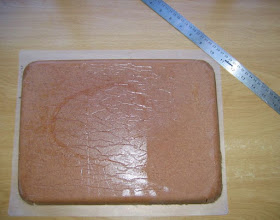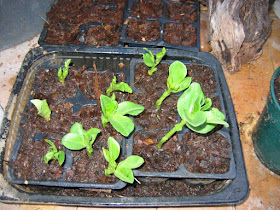NGirl sent me this link today.
 |
| http://www.youtube.com/watch?v=2J6fjVHQPew |
It is only a 1 minute, 12 second clip, but WOW!
And to quote from the information that accompanied the link:
"This is a 24 hour observation of all of the large aircraft flights the world, condensed down to 1:11. From space we look like a bee hive of activity. What you will see, is a video showing air traffic around the world for 24 hours, taken from a satellite.
You won't believe this! The yellow dots are airplanes in the sky during a 24 hour period.
Stay with the picture. You will see the light of the day moving from the east to the west, as the Earth spins on it's axis. Also you will see the aircraft flow of traffic leaving the North American continent and traveling at night to arrive in the UK in the morning. Then you will see the flow changing, leaving the UK in the morning and flying to the American continent in daylight.
This is something that everyone should see. For us old-timers it is really fascinating. For our children/grandchildren it provides a superb learning moment and an opportunity to open up what could be a very interesting discussion. This is one of the coolest things ever seen. It surpasses the "World At Night" poster that NatGeo (I think) published about 20 years ago and my "America At Night" coffee mug. How many people do YOU think are in the sky at any given moment?
You can tell it was spring time in the north by the sun's foot print over the planet. You could see that it didn't set for long in the extreme north and it didn't quite rise in the extreme south. We are taught about the earth's tilt and how it causes summer and winter and how we had to imagine just what is going on. With this 24 hour observation of aircraft travel on the earth's surface we get to see the daylight pattern move as well. Remember watch the day to night..... Day is over in Australia when it starts."
This is truly hectic!
How many people have travelled in a plane and thought they were in one of only a couple in the air at that particular time?
Consider the carbon footprint of all those planes. Consider what we are doing to the very air that we breathe, never mind the ozone layer, with all that jet fuel. Consider the impact on our bodies, through being stationary in airplane seats, or through willingly embracing jet lag side effects, for extended periods of time.
Yes, I know that it is a convenient way to travel, and one which is much faster than the old sailing ships of yore, but how many of those trips are really necessary? How many are taken, for the "sake of a holiday" or because someone has itchy feet? How many business trips could rather be achieved through conference Skyping the customer?
How selfish has man become?
Me, me, me. What about our planet? Or can't we be bothered, because we won't be around when the proverbial truly hits the fan?
When are we going to spare a thought for this plant which we inhabit only briefly? In the grand scheme of things each and every human is a really small, insignificant, fleeting inhabitant, but our negative impact is eternal.
One person at a time - and we can change the course we are currently on - just one person at a time. Help me by spreading the word - please.
If we could try and keep all unnecessary air, or car travel, to a minimum, that is a good start. Growing as much of your own fresh fruit and vegetables, walking or cycling to the shops, holiday-ing at home - discovering everything your area has to offer - they are all do-able.
We just have to stop being selfish and lazy. And consider the long term ramifications of each action we take.
We can do it - we did it in times of yore. We don't have to revert to completely outdated methods of growing, harvesting, heating or lighting our homes, or clothing ourselves - we are wiser now. But are we wise enough to effect a long lasting change of habit - not for our sakes, but for the sakes of our children, and their children, and... most importantly, for the sake of planet earth?
If we use what is freely available to all of us, for lighting, heating and cooking, we would make a significant difference to our footprint. The sun is there for all - we just have to want to use its' bounty.






































